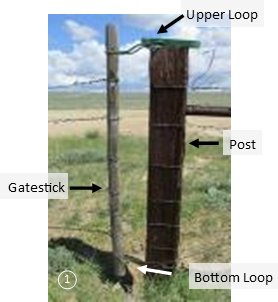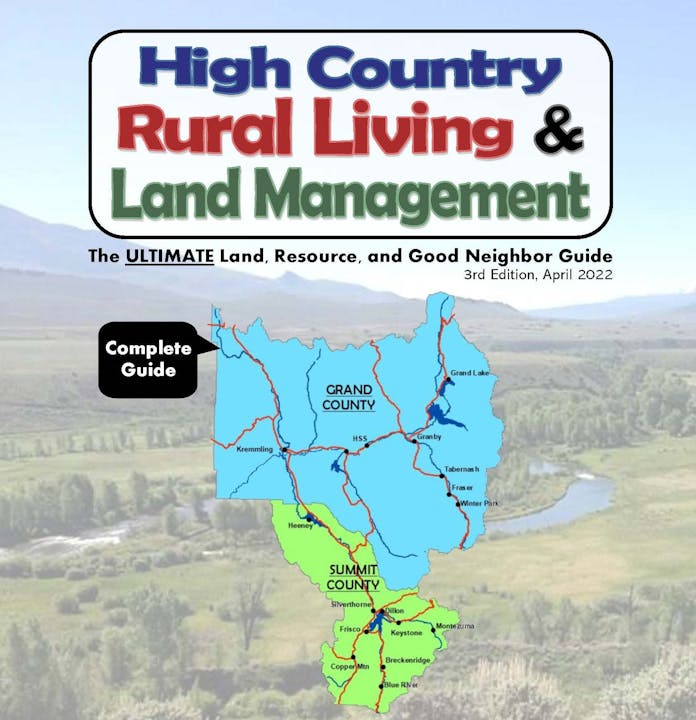Minimizing Conflict 1

ON THIS PAGE
- Short-term Rentals (STRs)
- Recreational Etiquette & Safety
- For other Minimizing Conflict Topics, go to Minimizing Conflict 2
Short-Term Rentals (STRs)
Some people like them, some people don’t. However, the reality is that short-term rentals are a growing industry in both Grand and Summit Counties, and they are probably not going away any time soon.
A short-term rental (also known as a vacation rental) is the nightly or weekly rental of dwellings, dwelling units, mobile homes, rooms or accommodations, excluding hotel and motels, for less than 30 consecutive days, including but not limited to single family dwellings, duplexes, multi-family dwellings, townhomes, condominiums, time share or similar dwellings. Many hosting sites provide a service to clients listing their properties online for rent to wide audience groups online. Some examples include, but are not limited to: VRBO, Airbnb, HomeAway, Trip Advisor, and many other vacation rental hosting sites.
All property owners desiring to engage in the short-term rental of a residence in unincorporated Grand or Summit County must apply for a Short-Term Rental Permit with their respective county (see links below). These permits must be obtained and renewed on annual basis. Each town in Grand and Summit County has its own regulations regarding STRs; thus, individuals living in town should contact their town government office.
Because the STR renters are new to the county and do not know the area like the locals, here are some Suggested Resources for Guests to provide them (and your fellow neighbors) with the safest and most pleasant stay possible.
-
Install a 9-1-1 Reflective Address sign at the end of the driveway for clear identification of your property for guests and emergency responders. Remember, guests may not be arriving during daylight hours.
- Clearly post the proper address (9-1-1 address) on the inside of the door in case of emergency. This should include the County Road number if you live on a county road.
-
Have a list of important numbers and websites easily available
- STR Owner and/or Responsible Party (24-hour contacts)
- 9-1-1 for Emergencies (keep in mind that international guests may not be familiar with 9-1-1 as the emergency number)
- Local hospitals, doctor’s offices, clinics, and urgent cares
- Police and sheriff department non-emergent numbers
- Fire Protection Districts
- Chamber of Commerce Offices
- Popular local tourist locations (including US Forest Service Office, Bureau of Land Management, Rocky Mountain National Park)
- If there is public transportation available, info on the Public Transit routes/schedules
- 5-1-1 or cotrip.org for road conditions and closures
- Post an emergency exit plan and highlight the location of fire extinguishers
-
Make sure all smoke and carbon monoxide detectors are functioning and the batteries are good
- Tell guests where extra batteries can be found… just in case the batteries die in the middle of the night and the alarm starts going off.
- Remind guests to check Fire Restrictions before lighting an outdoor fire (include the fire department’s number or a link to the county’s fire restrictions page)
- Post applicable street parking rules (especially pertaining to winter snowplowing operations)
- If trash service is provided onsite, state when and where to put the trash out. Ensure that outdoor garbage bins are ‘bear-proof’
- Post the maximum occupancy of the short-term rental
- Post Noise and Disorderly Conduct expectations —No person shall make, cause or permit unreasonable noise to be emitted from the Short Term Rental that is audible upon private premises in excess of the limits set forth in Title 25, Article 12 of the Colorado Revised Statutes or constitutes disorderly conduct under C.R.S. § 18-9-106
- In Summit County, Good Neighbor Guidelines are REQUIRED to be posted inside the rental unit. Even though they may not be required in other jurisdictions, these are good guidelines that all renters should abide by. For a complete list of guidelines, go to https://www.summitcountyco.gov/services/community_development/short_term_rentals/good_neighbor_guidelines.php
Grand County STR Department: www.co.grand.co.us/943/Short-Term-Rentals
Summit County STR Department: www.summitcountyco.gov/1221/Short-Term-Rentals
Recreational Etiquette and Safety
Grand and Summit Counties offer an array of opportunities for outdoor enthusiasts, including many rivers, streams, lakes, rugged terrain, mountain meadows and valley floors. The terrain is a part of the area’s history, culture, and industry. The three main industries in the area—ranching, mining, and recreation—all depend on Middle Park’s natural setting and geography. While enjoying the outdoors, one must remain cognizant of the different industries in the area. These industries share the same resource but have different ways of doing business. Thus, if you plan to recreate in the high country, you need to be aware of certain recreational rules and etiquette.
Determine Property Owner
You must FIRST determine if the property you want to access is public or private. If it is public, find out which organization manages the property and if it is being leased or otherwise used. Many high country public lands are under the direction of a federally-administered grazing permit system critical for maintaining many ranching operations. If the property is being leased for grazing, it is extremely important that you leave all gates how you found them (open or closed), give livestock the right of way, and keep pets leashed. You also need to make sure you are aware of the property’s boundaries. Fences do not always indicate property lines. It is your responsibility to know whose property you are on at ALL times. If you do NOT have permission to be there, you are trespassing. If you trespass, you may be subject to criminal penalties.
Ask First to Go on Private Land
If you are interested in going on private land, you must first ask the landowner. They may or may not grant you access. It is their right to select who gets to go on their property as well as rules to be followed while using their land. Under no law or statute are private landowners obligated to allow you access on their land. They also have every right to ask you to leave. It is in your best interest to create a good relationship with a landowner whose property you wish to access. They will be more inclined to allow you access if they know you on a first name basis. After using a property, be sure to leave the area the way you found it.
Follow State, Federal, and Local Laws
If you break the law on someone else’s property, do NOT expect to get away with it. The landowner has the right to prosecute.
Leave Gates as You Find Them

The success of a livestock operation depends on the satisfactory control of animals through use of fences and gates. Please leave gates the way you found them, open or closed. The landowner will greatly appreciate you passing through the area without causing problems for their livestock operation. All fences are property belonging to the rancher or landowner, and IT is against the law to cut or dismantle any fence. It is sometimes difficult to close a wire gate if you have never done it before, so...

Here are the steps to closing a wire gate:
1. Put the gatestick in the bottom loop
2. Move the bottom loop up as high as possible on the gatestick
3. Put your arm around the gatestick and grab the post with the same arm
4. Use your shoulder to push the gatestick toward the post
5. With the other arm, pull the top loop firmly down onto the gatestick
If you can’t get the gate closed, let the rancher or land manager know immediately. Do NOT just leave the gate open if it was originally closed.
Sharing the Road and Land with Livestock
You may encounter livestock on roads, trails, paths, and in open meadows. Please remember that Grand and Summit Counties are range country, and you may encounter stock on the road at any time. It is likely legal for them to be there. The lives of the animals and the safety of everyone involved depends on your careful maneuvering through and around livestock.
Tips for Approaching Livestock
- As you approach a horseback rider from behind, SLOW DOWN and speak loudly to make your presence known (“Mountain biker coming behind you!”)
- If the horse is frightened, continue speaking. Ask the rider if you can help by leaving the trail.
- Don’t cause an accident. Most riders just want a chance to leave the trail safely.
- Keep all dogs on leash (for your dog’s safety and that of the livestock).
- If you encounter grazing animals, simply continue on your way.
Remember, mountain safety can be a matter of life or death. Always be prepared for changing weather conditions.
DON’T FORGET:
1) Determine who owns the property you want to access,
2) Ask first for permission to access the land,
3) Adhere to all directions and rules,
4) Leave gates as you found them,
5) Follow the law,
6) Share the road and land with livestock,
7) Keep an eye out for changing weather conditions, and
8) prepare for the worst.
References: 1, 8, 10, 53, 54



